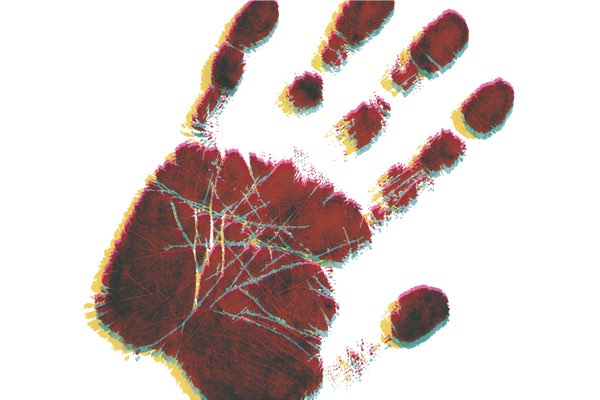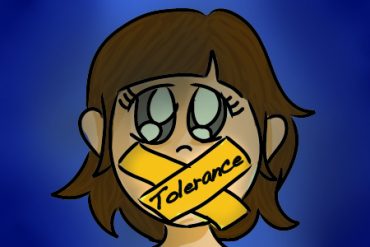Countless women are killed every year in the name of honor; our societies harbor such injustice and we are all passive participants.

Almost every evening, when the inhabitants of the oldest apartment building in the outskirts of the youngest and most urbanized city in the country were supposedly in a deep sleep, a certain man beats his wife. Selim, a 14-year-old boy in this oldest apartment building, laid in bed as loud thuds seeped from the apartment above and shook the chandelier clinging onto his bedroom ceiling. Every morning, the neighbors wake up as if they had been asleep all night and had not heard a single thud transported by the passive walls. On this ordinary day, following an evening of the unspeakable ritual of beatings, Selim ran down the apartment building’s staircase in an attempt to arrive in time for his morning class. The red strokes scarring the staircase brought him to a halt. An aching unease crawled in the depths of his soul as he heard the news from his neighbors. He ran back to his living room breathless, his face pale and mouth dry. “Did you hear about the woman that got murdered last night?” He asked his mother, a senior woman of about 50 years old. Casually, his mother replied, “Which one? The shameless one who cheated on her husband, or the one that converted from Christianity to Islam?” His face drained of blood as he witnessed his mother’s flippant attitude towards a crime punishable by law.
This reality seems like something we would read in a Gabriel Garcia Marquez novel or watch in a documentary on the topic of women oppression in the Middle East. Unfortunately, honor killings are real and are considered to be the most extreme form of Gender-Based Violence (GBV) and a violation of the most basic human right, the right to life. “Honor killing” is the act of killing a person who has breached a society’s “honor code”, which is a result of deeply ingrained social, patriarchal and cultural preconceptions of how one should behave. Mostly, women are the victims of such honor killings as a society’s “honor code” expects women to be modest, pure, and virginal in order to uphold the honor of her family, while men are not chained by these expectations. Throughout time and across many cultures, men are known to protect, care and be responsible for their families, especially the female members. Women’s behavior represents how well the men in their families are able to conserve their households, and thus any behavior that deviates from the “honor code” tend to bring shame upon the men in the family, who will be perceived as weak for not being able to uphold and respect cultural values. Thus, honor and masculinity are synonymous, and men would go to great lengths to gain and maintain it. Many consider honor killings as the perfect way to regain lost honor. The points discussed above don’t cause much controversy.
However, there are many misconceptions regarding honor killings. While the media tends to locate honor killings in Middle Eastern and Islamic countries, the United Nations Commissioner on Human Rights reports cases occurring in Brazil, India, Ecuador, and Uganda as well as in Islamic countries. Monotheistic religions in general and Islam in specific tend to be blamed for producing the concept of honor killings, as it is derived from an adulterer’s punishment of being stoned to death. Surprisingly, honor crimes originated in Europe, more specifically from Article 324 of the Napoleonic Penal Code, which states that a husband who kills his wife as a punishment for adultery is excused[1]. Furthermore, murder in the name of honor is not prescribed by any interpretation of the Sharia; there are no verses in the holy Quran and no saying of Prophet Mohammad (pbuh) that authorizes such crimes.
On the contrary, the Sharia strongly prohibits the killing of any person without rightful reasons. Islamic teachings do not allow people to take the law into their own hands and commit murder, regardless of the crime. Although Islam does impose the capital punishment for certain crimes, no one person can act as the judge and executioner, except the judge himself. Although honor killings are a global problem that did not originate in the Middle East or by Islam, this does not mean that the Middle Eastern society is not responsible for binding it to social norms.
It is important to point out that governments should not be blamed solely for permitting honor crimes; it is a collaborative effort between them and their collectively passive societies in harboring values that excuse honor crimes. All societies have to acknowledge that there is nothing honorable about these murders. The continuing problem of honor killings does not only say something about the families that approve of it or the killers who act upon it, but also portrays a defect in the way men and women are raised and what they are taught to be normal. The term “honoring killing” clouds culpability. It cloaks acts of gender violence with one of the highest human aspirations — honor. As a result, those who kill for honor go unpunished. It is time to understand that women should not be held responsible for maintaining communal honor, but should be treated as individuals responsible for their own actions. Honor crimes are not women problems. Once we say they are women problems, men tend to neglect and distance themselves from the issue. They are men problems, as the perpetrators are men acting with ignorance and a handicapped notion of what is ethical. Their impaired idea of a justice system is partial to women, as men who breach a society’s honor code are not punished as women are.
So on this ordinary day, Selim was wounded with the long and abundant strokes of blood smeared on the staircase. Too much rage and resentment could be seen with each smear. The vast display of red that stretched before the eyes of his memory provoked a ball of furry to roll down his chest and nestle in his stomach. He failed to comprehend how such brutality is equated to justice. As night fell, Selim lay in bed and peered into the pitch-black streets. “She deserved it… she deserved it”, he repeated. His conscience was as silent as the moonless night, and just as dark. Unconvinced, he observed the grandeur of the distant city and its indifference to her death. He was suddenly seized by a profound loneliness; he knew he couldn’t face this injustice alone.
[1] Jason Payne-James and Roger W. Byard, Encyclopedia of forensic and legal medicine (Amsterdam: Elsevier, 2016).



